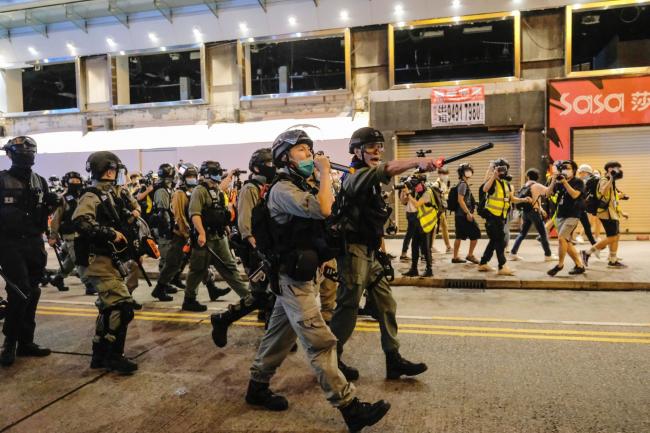(Bloomberg) -- Sweeping new national security laws being imposed on Hong Kong might not be retroactive, a Chinese official said, potentially limiting the scope of controversial legislation that’s currently being drafted in Beijing.
Deng Zhonghua, deputy director of the Hong Kong and Macau Affairs Office, made the comments Monday at an event in the mainland border city of Shenzhen. The conference was organized by the Chinese Association of Hong Kong & Macau Studies and was attended by several officials responsible for affairs in the former British colony.
“It needs to be clarified that, even though there are differences in the Hong Kong and mainland legal systems, the principles used in the mainland with regard to criminal laws are not fundamentally different from those in Hong Kong,” Deng said. “They all include principles such as the laws will not be applied retrospectively, presumption of innocence, suspects and defendants will have right to defense.”
Deng added: “All these principles can be stipulated in this legislation.”
The Chinese government and its appointed leaders in Hong Kong have been seeking to reassure local residents, foreign officials and overseas investors about the looming legislation. Pro-democracy activists and their supporters have expressed alarm about the security laws, which would criminalize the harshest criticism of Beijing after a year of unprecedented and often violent anti-government protests.
Organizations ranging from business chambers to human rights groups have criticized Beijing’s move to bypass Hong Kong’s legislature and impose laws banning subversion, secession and foreign interference. Opponents say the push would undermine the freedoms promised to Hong Kong before its return to Chinese rule in 1997 and erode the city’s appeal as a global financial hub.
For months last year, protesters chanted “Liberate Hong Kong! Revolution of our times!” in marches that drew more than a million people. One band of radicals broke into the Legislative Council on handover anniversary, ransacking the chamber and defacing the city’s emblem. Some high-profile activists traveled to Washington to advocate for legislation that would punish Beijing for its crackdown.
Deng’s comments echo remarks by Hong Kong Justice Secretary Teresa Cheng, who said in a blog post Sunday that the Hong Kong Special Administrative Region’s Common Law legal system had much in common with China’s system.
“There are a number of commonalities between the civil and common law systems respectively in the Mainland and the HKSAR, such as retrospectivity, presumption of innocence, burden of proof and standard of proof, legal certainty, etc.,” she wrote.
At the same time, she said it was “impracticable and unreasonable to expect that everything in a national law, the National Security Law, will be exactly as what a statute in the HKSAR common law jurisdiction would be like.”
(Updates with quote in fourth paragraph.)
©2020 Bloomberg L.P.
